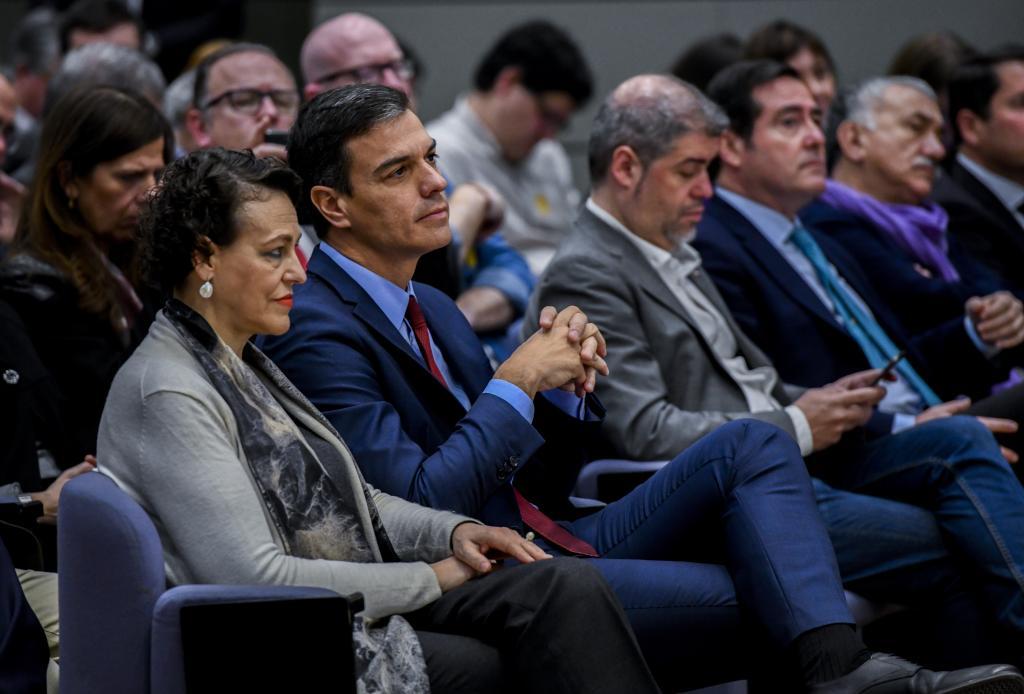The blockade that paralyzes political life since last April and threatens to extend until January next year has led businessmen and unions to activate a plan to shake the paralysis in Congress. If the round of consultations that begins today does not lead to an investiture, CEOE, Cepyme, CCOO and UGT will negotiate on their own in all matters they can deal with without waiting for who can be their interlocutor in the Government within a few months.
The differences faced by employers and unions are, in some aspects, such as changes in labor reform, as pronounced as those that separate the parties. However, with the economy and job creation giving clear signs of slowdown , the conviction that social dialogue cannot be paralyzed by the blockade in Congress is more likely than waiting for an agreement that they see as very complicated.
All indicators suggest that the recovery of the labor market is running out and although the underlying trend remains positive, there is no capacity in the Government to take initiatives that help to bring unemployment figures well below three million. Registered unemployment increased last August by 54,371 people to reach a total of 3.06 million unemployed. With 212,000 fewer workers, Social Security affiliation registered its biggest decline this month since 2008.
The agreement between the social agents has taken place after the visits made to Pedro Sánchez this summer and to verify that the formation of a Government with which to deal with the pending issues is unlikely. Also due to the fact that it is possible that the new election date also does not give rise to a stable majority. Thus, if there is no agreement for an investiture, businessmen and unions will contact to decide when to meet around four tables: Employment and submerged economy; Education and Vocational Training; Industry and Energy and Economy and digitalization .
The one of a new electoral call is a possibility that bothers some more than others in any case. Antonio Garamendi, president of CEOE, has indicated on more than one occasion that, given the slowdown in the economy, a solidly established government is preferable to handle the situation than another more unstable one and that if the price is a new election, it must be assumed .
This does not imply that the businessmen are oblivious to the criticisms that the parties are receiving for their inability to forge an agreement. The employer has censored the abuse made by Sánchez of the royal decrees to carry out measures such as the rise of the Minimum Interprofessional Salary (SMI) or different regulations in the workplace. On the other hand, the possibility of a government between PSOE and United We can not like among employers and much less with a part of employment policies under the responsibility of training chaired by Pablo Iglesias .
On the union side the point of view is very different. Pepe Álvarez and Unai Sordo have been opposed from the beginning to an electoral repetition offering Sanchez his ability to seek support even in the Catalan independence parties. In his opinion, to repeat the vote last April is to risk losing a majority with which they aspire to promote profound changes in the labor framework, such as the excessive weight of temporary employment in new hires and to launch more social protection measures. . The ultimate purpose is to revoke the 2012 labor reform, a strategy that they already claim to have agreed with the Minister of Labor, Magdalena Valerio.
According to the criteria of The Trust Project
Know more- CEOE
- United We Can
- UGT
- Social Security
- Pedro Sanchez
- Pablo Iglesias
- PSOE
- Magdalena Valerio
- Industry
- Energy
- CCOO
- Unemployment
PoliticsPP and Citizens believe that the wreck of PSOE and Podemos is "the anticipation of its failure at the polls"
InvestiduraMoncloa: "There cannot be two governments in one, as in Italy"
Politics The King will hurry the deadlines despite the breakup of PSOE and Podemos

